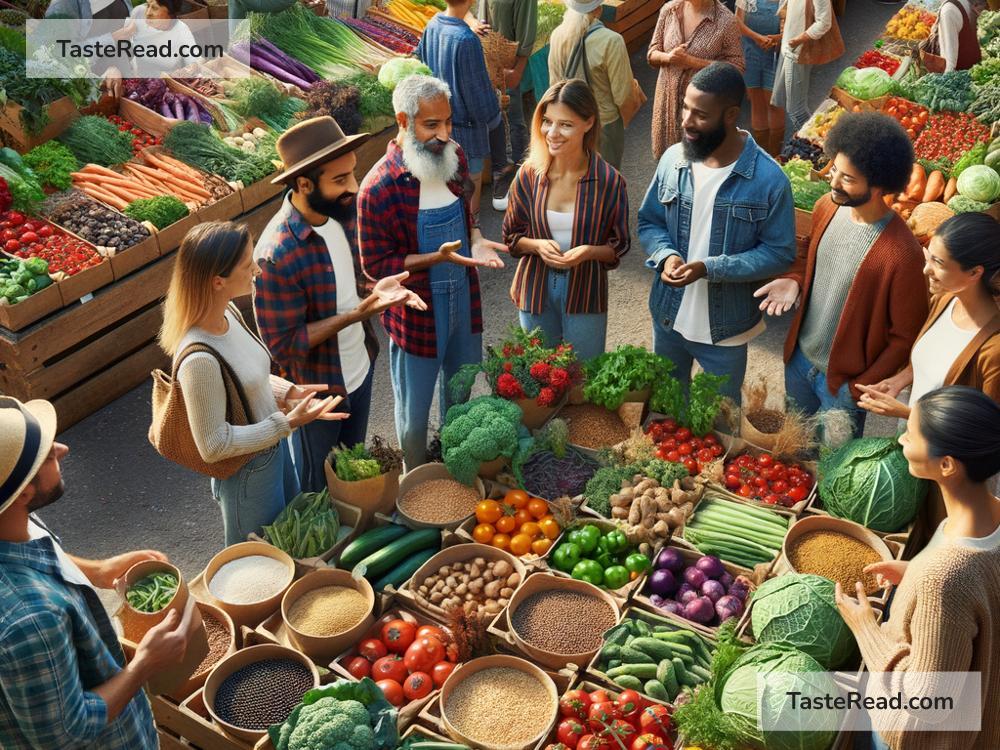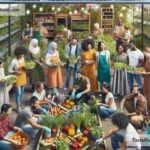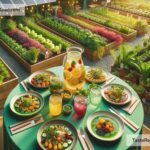The Future of Food and Sustainable Cultural Practices
The way we grow, consume, and think about food is changing fast. As the world’s population grows and environmental challenges increase, we need smarter and more sustainable ways to ensure everyone has access to healthy meals. At the same time, preserving cultural traditions around food is important because food is not just about survival—it’s also about identity, community, and celebration.
This blog explores the future of food and the role sustainable cultural practices can play in building a better food system for both humans and the planet.
The Challenges We Face
Food production has a big impact on the environment. Agriculture uses huge amounts of land, water, and energy, and it produces greenhouse gases that contribute to climate change. Forests are often cut down to make room for crops or cattle, and over-farming can harm soil, making land less fertile over time. Traditional farming also depends heavily on chemicals like pesticides and fertilizers, which can pollute rivers and oceans.
In addition to environmental problems, food insecurity is another major issue. Millions of people around the world don’t have access to enough nutritious food. At the same time, enormous amounts of food are wasted every year in homes, restaurants, and grocery stores.
Clearly, the way we approach food needs to change—and fast.
Innovations in Food Production
The future of food will rely on innovation, as researchers and farmers work together to create systems that are more efficient, eco-friendly, and resilient. Some exciting developments include:
-
Vertical Farming: Instead of growing crops in wide open fields, vertical farming involves stacking layers of crops indoors. These farms use less water and often rely on LED lights rather than direct sunlight. Because they are built inside buildings, vertical farms can be set up near cities, reducing the need for transportation.
-
Lab-Grown Meat: Scientists are learning how to grow meat in laboratories using animal cells. This process creates real meat without raising and slaughtering animals. Lab-grown meat could drastically lower greenhouse gas emissions and protect farmland from overuse.
-
Plant-Based Alternatives: Many companies are creating delicious alternatives to meat by using plants like soy, peas, and mushrooms. These products have a smaller environmental footprint and offer options for people looking for sustainable ways to eat.
-
Regenerative Farming: Regenerative farming is an approach that focuses on improving soil health by planting diverse crops, avoiding harmful chemicals, and rotating farmland to allow the earth to recover. Healthy soil can store carbon from the atmosphere, helping to fight climate change.
-
Smart Technology: Farmers are using tools like drones, GPS, and artificial intelligence to monitor crops and livestock, improve efficiency, and reduce waste. For example, sensors can measure exactly how much water a field needs, helping to conserve precious resources.
Sustainable Cultural Practices
While technology is key to the future of food, cultural traditions also play a role in creating sustainable food systems. Many Indigenous communities around the world have passed down ways of eating and farming that respect the environment. Learning from these practices can help us create a greener future.
-
Seasonal Eating: In many cultures, people eat foods that are in season rather than importing them from far away. Seasonal eating reduces the environmental cost of transportation and ensures fresher, healthier meals.
-
Reducing Waste: Some food traditions emphasize using every part of a plant or animal. For example, bones and vegetable scraps might be turned into soups or broths rather than thrown away. This approach minimizes food waste and honors the resources used to create the meal.
-
Community-Based Agriculture: Across the globe, farming has traditionally been a group activity. Community-based agriculture builds personal connections between farmers and consumers, reducing the need for large-scale industrial farming that harms the environment.
-
Mindful Eating: In some cultures, meals are treated as sacred times to slow down and appreciate food. Mindful eating encourages smaller portions, reduces overeating, and strengthens the bond between people and the food they consume.
By combining modern technology with respectful, time-tested practices, we can design food systems that are better for both people and the planet.
What Can You Do?
The future of food isn’t just about farmers and scientists—it’s about all of us. Everyone has the power to make choices that promote sustainability. Here are a few simple ways you can help:
-
Support Local Farmers: Buying local food supports small businesses and reduces the environmental costs of transportation.
-
Eat More Plants: Including more plant-based meals in your diet can help reduce the demand for resource-heavy meat production.
-
Avoid Food Waste: Plan your meals, store food properly, and get creative with leftovers to avoid throwing food away.
-
Learn About Food Origins: Take time to learn where your food comes from and appreciate the cultural practices that shaped it.
A Greener, Healthier Future
The future of food is about balance—finding ways to feed the world while caring for the planet and honoring the cultures that make food special. With innovations in farming, a return to mindful practices, and small changes in how we approach meals, we can build a food system that is sustainable, equitable, and deeply connected to our traditions.
By working together, we can create a future where everyone has access to healthy food and where the earth thrives for generations to come. Let’s embrace this opportunity to protect both our planet and the cultures that make it diverse and beautiful.


